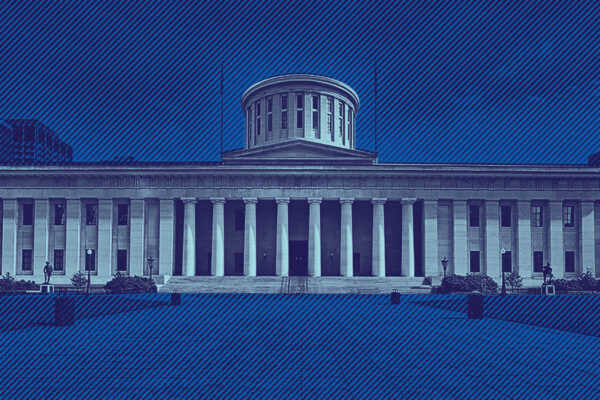Below is our Chief Lobbyist Gary Daniels’ proponent testimony on Senate Bill 181. This was delivered to the Senate Primary & Secondary Education Committee on May 25, 2021.
To Chairman Brenner, Vice Chair Blessing, Ranking Member Fedor, and members of the Senate Primary & Secondary Education Committee, thank you for this opportunity to provide the following proponent testimony for Senate Bill 181.
The ACLU of Ohio is happy to briefly add its support to this legislation. For most everyone involved, where the lines are drawn with regard to religion and government can be a little tricky. Under the First Amendment, government is required to be neutral when it comes to matters of religious faith. Sometimes, government bodies or employees accommodate too much, violating this required neutrality. Other times, government goes too far the other direction, and does not properly accommodate religious beliefs and practices.
Often times when problems do arise, the setting is public schools, including with sports and other extracurricular activities. As you have heard today, SB 181 is aimed precisely at school athletic competitions, among other and all extracurricular activities. While the First Amendment and the Ohio Constitution should ideally serve as adequate reminders of the role of public schools and accommodating students' beliefs, occasionally a reminder is needed. SB 181 is not only a reminder, it is a "belt and suspenders" approach to protect students' faith.
Over the past few years, the ACLU of Ohio has and continues to testify and opine about other religious accommodation bills involving high school and college students. When we do, it is because well-meaning legislators and supporters, in their efforts to protect religion, introduce overly-complicated bills with unnecessary language that may ultimately cause more confusion about students' rights instead of providing needed clarification.
Along those lines, I would like to highlight one section of SB 181 where we believe improved language would be wise
SB 181, as it relates to student athletes, applies to public schools, private schools, interscholastic conferences, and organizations that regulate interscholastic athletics. Surely, Ohio student athletes participate in competitions outside Ohio and perhaps even outside the United States. SB 181 currently does not distinguish between competitions held in Ohio versus those held in another state or country, where SB 181 would not apply.
That SB 181 would only apply to events in Ohio surely is obvious to many. But, the goal of SB 181 is to provide guidance and clarification to avoid unfortunate situations or the violation of rights. So, it should follow that SB 181 be clear in this regard as to its application and geographical limits, especially should a multistate, national, or international competition be hosted or held in Ohio.
Adding language to account for Ohio athletes competing outside Ohio (where SB 181 would not apply) and for events held in Ohio where students from other states and countries may be participating (where SB 181 would apply) should be an easy enough fix and the ACLU of Ohio would be happy to help develop appropriate language.
Otherwise, Senate Bill 181 is a positive bill for Ohio students and the ACLU of Ohio encourages this committee's support and SB 181's passage.


